
Sign in to your ScreenRant account
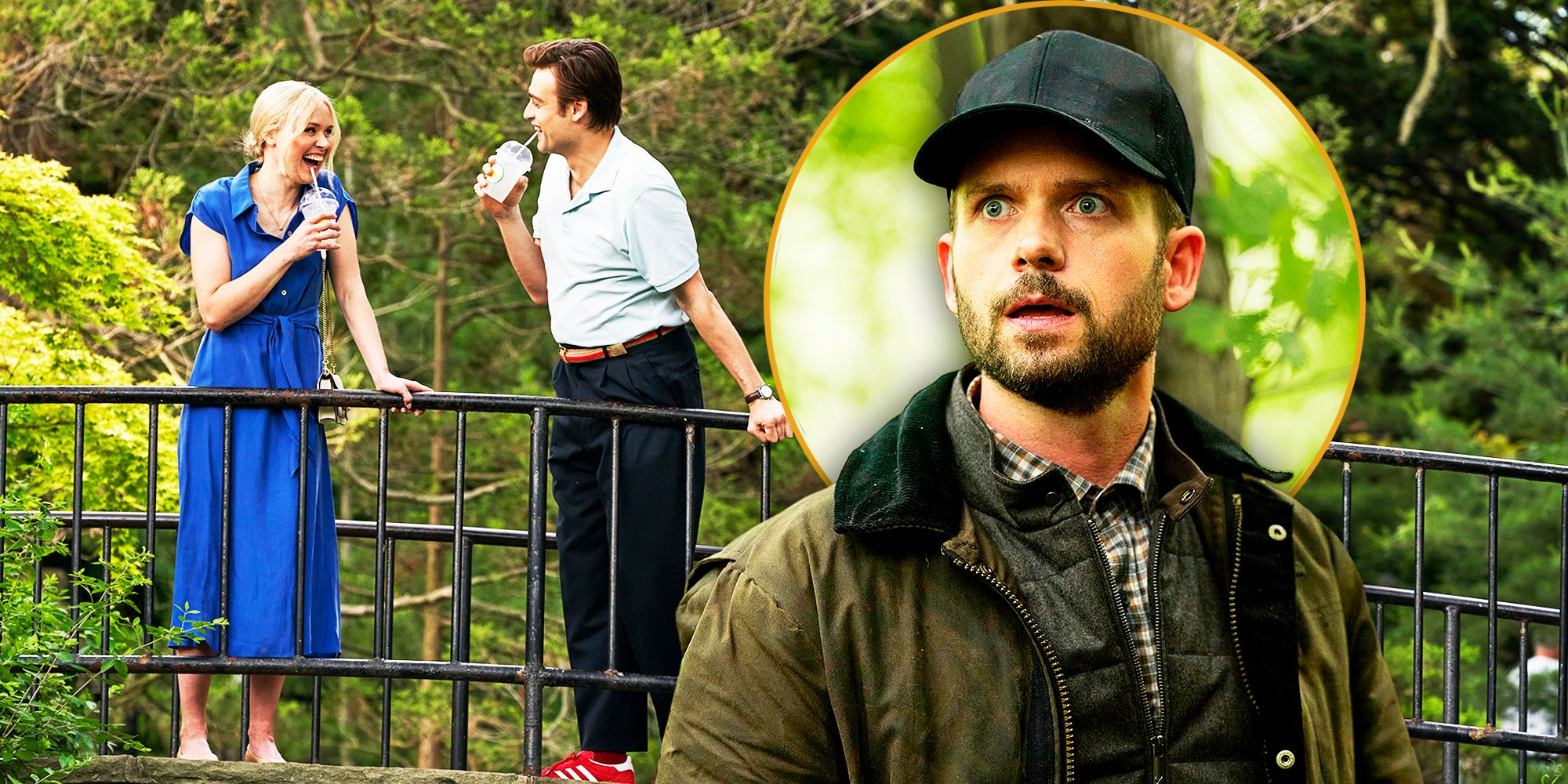
The Sorrows of Young Werther took Europe by storm when it first released back in 1774. Now, 250 years later, writer/director José Lourenço has adapted the timeless novel for film with Young Werther, starring Douglas Booth in the title role. Werther is a young aristocrat who falls in love with Charlotte (Alison Pill). The only problem is, she's already engaged to another man (Patrick J. Adams), but Werther won't let such trivialities get in the way of his plan.
Young Werther marks the feature film debut of writer/director José Lourenço, though he's spent years cutting his teeth on short films and music videos. Young Werther distinguishes itself from other rom-coms thanks to its snappy but sophisticated dialogue, delivered with gravitas and grace by its actors, in particular Douglas Booth, who imbues his character with a palpable charm that makes him easy to root for, even if his ultimate plan is less than savory. He is, after all, trying to steal another man's fiancé.
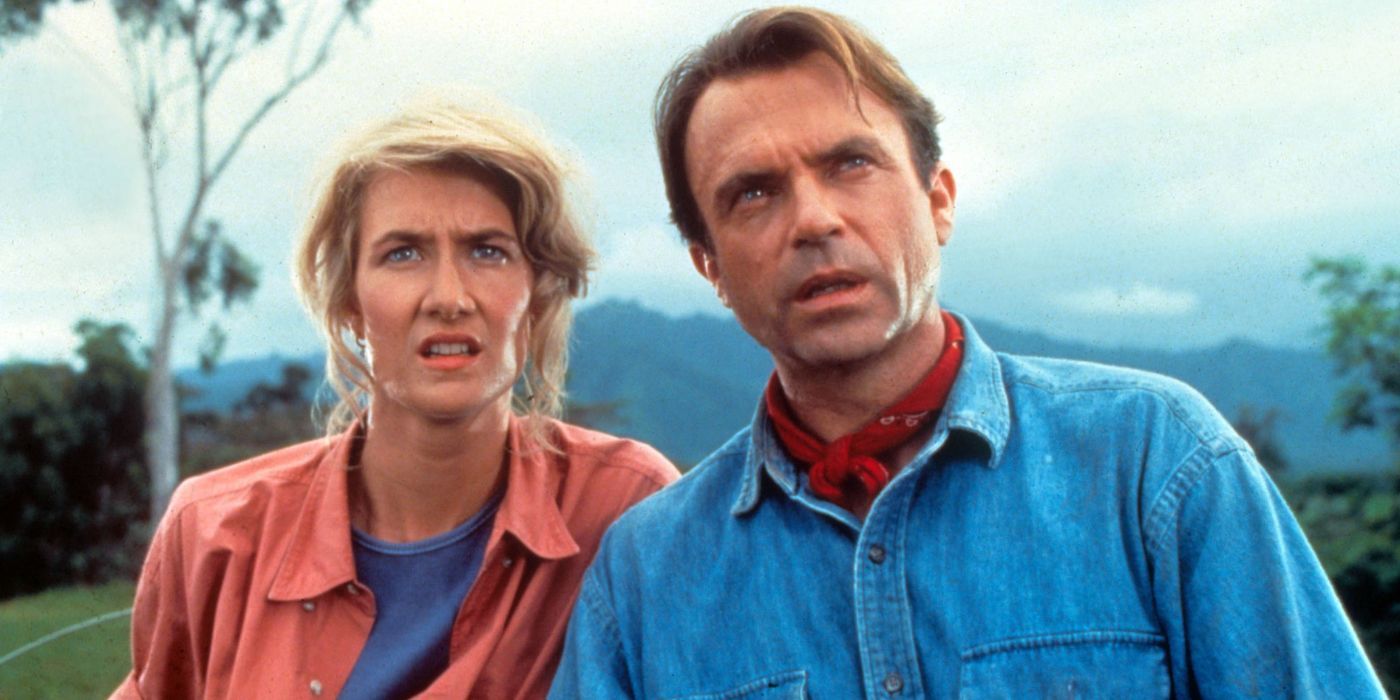
Related
10 Movies That Changed The Book And Made Something Better
Changing details from a popular book risks upsetting the fans, but some movie adaptations have managed to improve upon their source material.
ScreenRant interviewed writer-director José Lourenço about his work on Young Werther. He spoke about the various aspects of writing and directing the film, from his experience with the original novel to casting the movie and adapting the story for modern sensibilities. Slight spoiler alert: the ending is changed to something far less absurdly tragic.
Young Werther Writer/Director José Lourenço On Adapting An 18th Century Novel In 2024
"I think if it was a beat-for-beat recreation of the book, it would be very difficult."
ScreenRant: I didn't know what to expect from this one, but you won me over immediately. I knew it was based on a book from the 1700s, which, uh, forgive me for being uncultured, but I've never read it.
José Lourenço: I'd never heard of it either until I was made to read at university.
This is your big feature, writing/directorial debut. What made you go, "Young Werther, I'm going to do this story."
José Lourenço: I read the book in university. I had to read it in class and it really resonated with me at the time. But then, you know, I stuck it on my shelf for, like, ten years. Eventually, I moved into a new place and I was looking at books on my shelves, just looking for something to read, and pulled it down and was like, "Oh yeah, this!" I reread it and it just hit me in a different way. And I was like, why has there never been a major English language adaptation of this timeless tale that is still very well-known and taught like all across Europe, but I guess less known in North America...
But yeah, it just had something. It's like a classic love triangle, but nobody is the villain. It's just people, human beings, dealing with very human emotions and no black and white, good and bad, just the gray areas of feeling feelings. It's about the different stages of life you're in and what those different stages mean in terms of love and lust and friendship and partnership and who you are as a person and how you change when you meet people. It felt like there was a lot of rich territory to mine in any age. In 1774, in 2024. I'm sure, 200 years from now, there'll finally be the definitive version of 'Werther' that gets made.
We'd like to think we've changed a lot over the generations, and in some ways we have. But in others, we have not changed at all. Tell me a little bit about adapting the story to modern times. Is it harder than we might think, or is it easier than you might think?
José Lourenço: I think if it was a beat-for-beat recreation of the book, it would be very difficult, but I tried to just take the characters and the essence of the story and the themes, and use the book as sort of like a roadmap for where the narrative goes. The movie hews fairly closely the structure of the book. But the details and the day-to-day things that the characters in the movie are doing, those are inventions that feel appropriate to what they would be doing, you know, 250 years after the adventures in rural Germany from the original novel.
What do they do instead of skeet shooting? Is that one-to-one from the book? I'm kind of obsessed with the idea of skeet shooting as an activity of the leisure class.
José Lourenço: There is shooting in the novel. You know, the novel ends tragically.
Well, I know THAT shooting.
José Lourenço: There we go, you know that shooting. There's not skeet shooting as such, but there is gunplay. One of the things that's in the novel that has sort of a a direct modernization in the film is the scene near the end, where Werther and Charlotte are overcome with emotion as he's reading aloud from the Franny and Zooey, the first edition copy. In the novel, Werther recites from an epic poem, Ossian, in front of the fire with Charlotte, and they're overcome with emotion at his rendition of this poetry reading. So that was one of the things where I was like, oh, what would be the equivalent of like a romantic epic poem from 1774? And I was like, oh, what better than a JD Salinger book that has very similar themes to the film?
This movie is so much about "dancing like no one's watching," which seems a little ironic considering the book and its original ending. Is that something you were able to dig out of the story, or is it what you wanted to put into it?
José Lourenço: One of the things I really responded to in the original book, is, as much as it's full of like melancholy and hand-wringing and, and difficulty, Werther always seemed like a very funny, very alive character to me, someone who really does drink up every last drop of life and is really putting himself out there. I think there's different ways to read the book and there's tonal shifts, but I really connected with the idea of Werther as this optimist. Even though there's a lot of anxiety and depression and all the other things that come with trying to sort unrequited and partially requited love, and all the unknowns and discomfort. I do feel like there's something about his character and his inherent optimism that I really wanted to come through in this film and just have it be something that feels more true to what life and love is like today.
José Lourenço On Making Werther Likable & The "It" Factor Of Douglas Booth
"For all of the writing, for whatever's there in the script and the original story, I really do give all the credit to Doug"
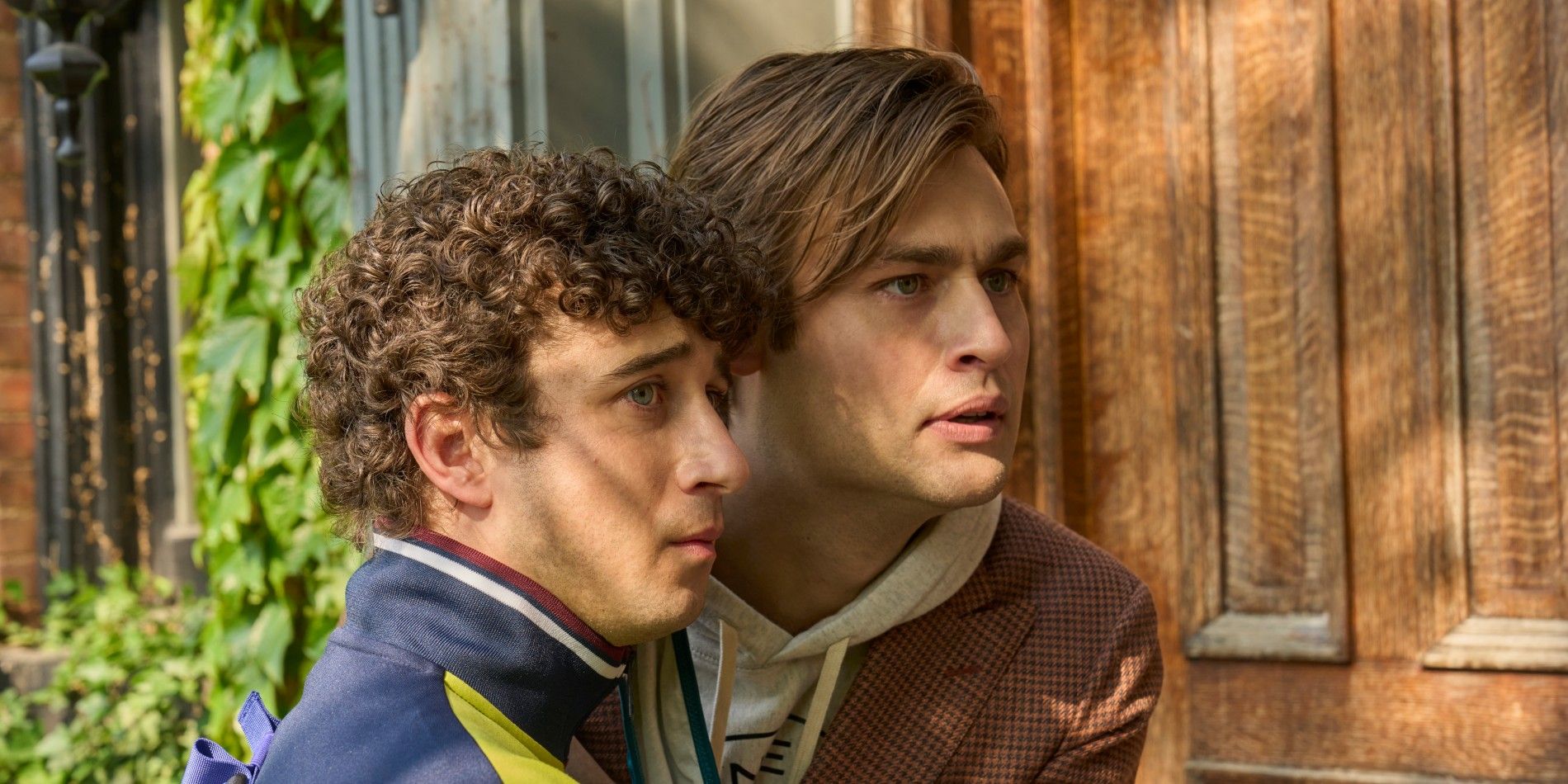
It's difficult to make a character who is, I don't think it's a negative term, but he's such a fop, but he's the lead, the protagonist, the hero. He's wealthy, he doesn't have to work. I love when he gets that epiphany to get a job and make his own money. What an epiphany to have!
José Lourenço: The cinematographer of the film. That's like his favorite line in the movie.
"I know! I will get a job!" Like, oh shoot. I should have thought of that. But to make him such an endearing character, someone we root for, I think a lot of that goes to the actor, of course. And a lot of that goes to your writing. Tell me about translating the character and creating this version of Werther.
José Lourenço: Yeah. I think, without Douglas Booth in this role, I don't know what the film would be. It's such a fine line to walk, to have him be this kind of despicable piece of sh*t in many ways, but also yes, this person who is kind to the people around him, is interested in other people, starts conversations, lights up a room, and can be self-deprecating. Even though he takes Charlotte seriously, and he takes the situation seriously, he doesn't take himself seriously. And I think that goes a long way to making him palatable on screen.
It helps that he never lies to Charlotte. He's never underhanded. He tells her outright that he's going to try to win her over, which really adds a lot of affability to him.
José Lourenço: I love that. That's a great insight. For all of the writing, for whatever's there in the script and the original story, I really do give all the credit to Doug. I still don't know how he feels about this comparison, but I'm going to keep making it. I really see him as a Cary Grant type, someone who can do drama with such pathos, but can also do the most effervescent comedy and can just, like, turn a phrase and have the look. I think it's a really special ability. I think there's very few actors who can truly live in a dramatic space or a comedic space and kind of traverse them with as much grace and class as he does. There's just something about Doug, I think he's a star. I think he's got "it." We've seen him in many things already, but I think we're going to see him in so much more, moving forward.
José Lourenço On Working With Alison Pill In Young Werther
"Alison Pill is just so unbelievable. She's an actor who can do anything."
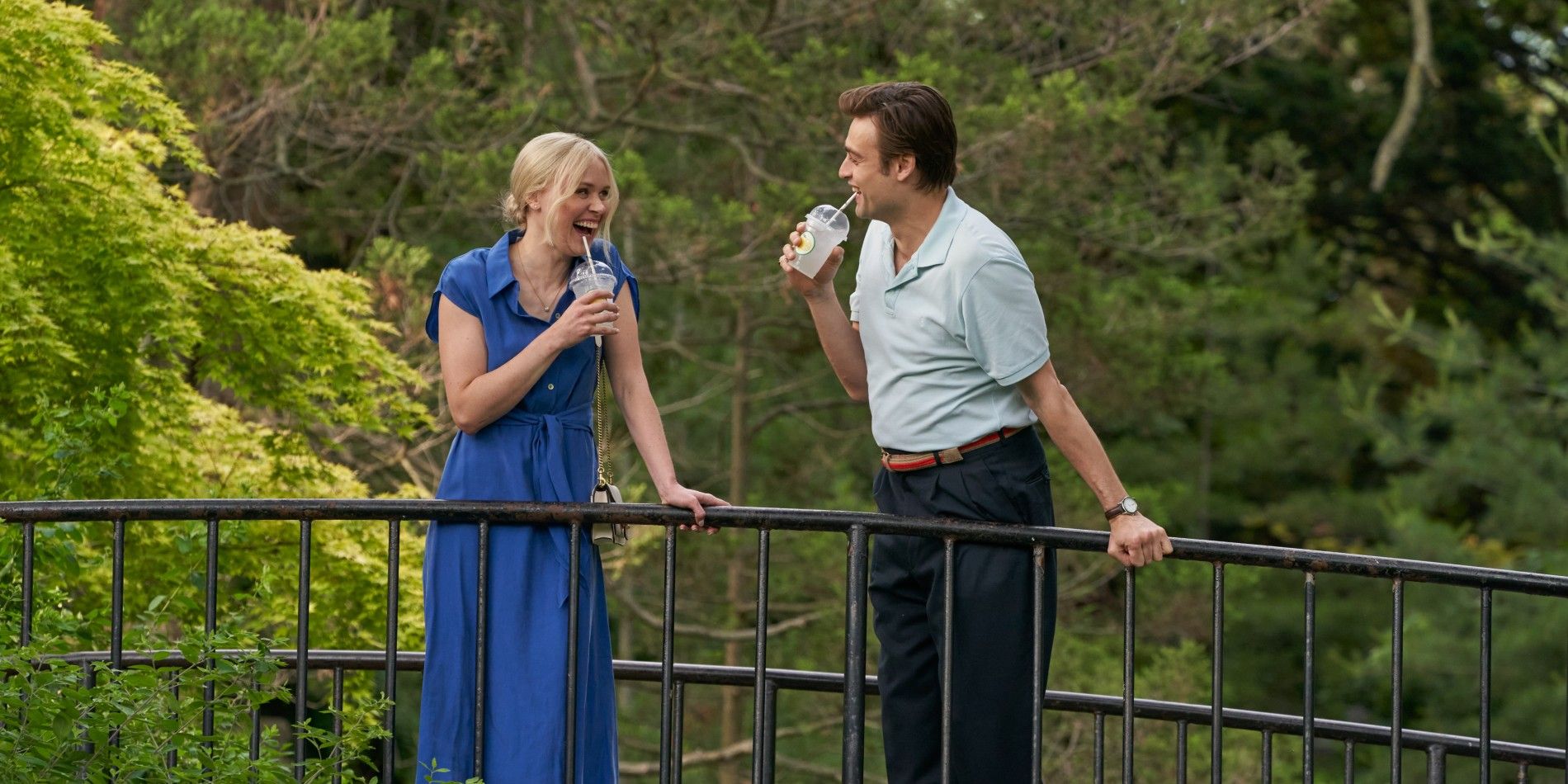
Totally. And you've got your leading lady, Alison Pill, I love her.
José Lourenço: She's just a dream, a dream. Yeah.
Tell me about her, her character. To an extent, she's an object to be pursued from the perspective of Werther, but the movie does not portray her as such, you know?
José Lourenço: If anyone is as close to the book in the movie, it's Charlotte. And Alison Pill is just so unbelievable. She's an actor who can do anything. I just saw her in the Spring, doing Uncle Vanya opposite Steve Carell and William Jackson Harper at Lincoln Center, and she can do Chekhov. She's a Tony Award winner! She can sing, she can dance, she can like do it all, she's one of these magnificent performers. And I think what she brought out of Charlotte is that Charlotte could have very easily been someone who feels sorry for herself, feels trapped at home, trapped in her marriage, but I love the vigor and the confidence that Alison imbued the character with.
She plays her as someone whom life has placed in a difficult situation, but she's sort of made the most of it as best she can, helping raise her siblings and keep the household running and really stepping up. And then here comes Werther to offer her this version of a youth that she didn't really get to have throughout her twenties. And he's a conduit, like an enzyme, just something that activates this thing in her that's like, "Oh, there is this other way of living, of spending my time. Is that what I want? Is it okay to want that?" Yeah, I just love the way that Alison brought it to life.
More About Young Werther (2024)
In Theaters And On Digital Now
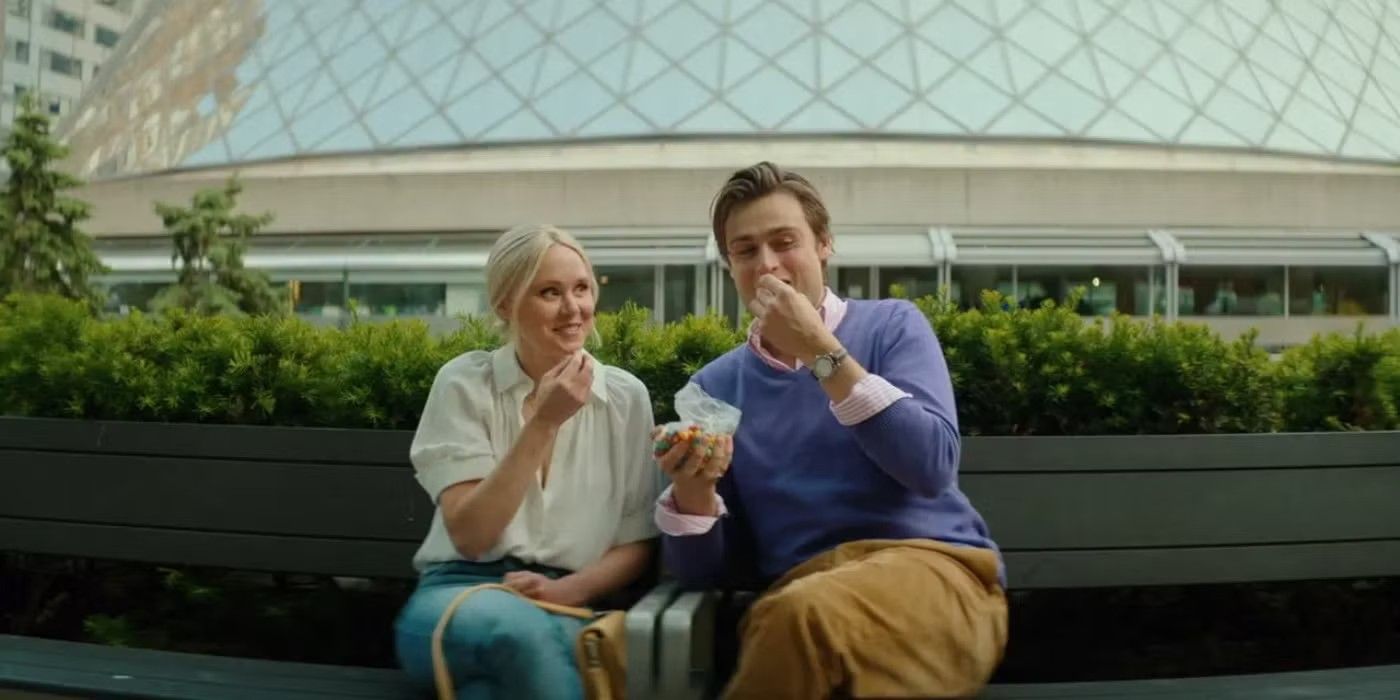
Patrick J. Adams, Douglas Booth and Alison Pill star in this romantic comedy based on the classic smash hit novel of tragic romance. While on a simple errand to Toronto, a carefree and charming young writer named Werther stumbles across the love of his life only to discover that the young woman is engaged. Despite the urgings of his hypochondriac best friend, Werther turns his world upside down in a desperate, misguided and hilarious quest to win her heart.
Check out our other Young Werther interview with:
Young Werther is now playing in select theaters and available on Digital & On Demand.
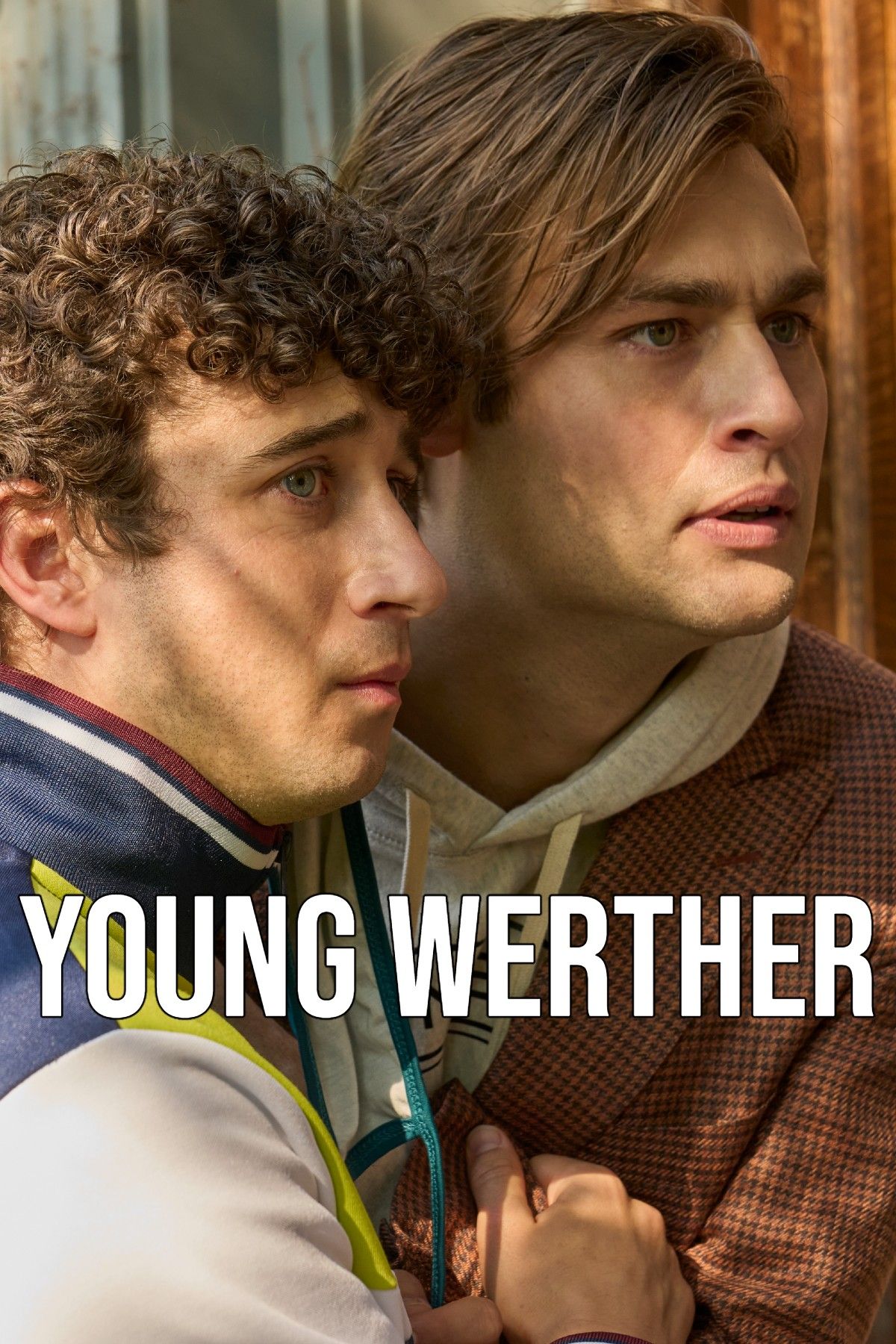
Young Werther follows the story of a passionate young novelist who, while on an errand in the city, encounters Charlotte. Despite her commitment to her fiancé Albert, Werther becomes entangled in an emotional affair with Charlotte, leading to a complex triangle of emotions and evolving relationships.
Release Date September 6, 2024
Runtime 101 minutes
Character(s) Charlotte , Werther , Mélanie , Sissy , Albert , Mr. Sandman , Young Lawyer
Director José Lourenço
Writers José Lourenço

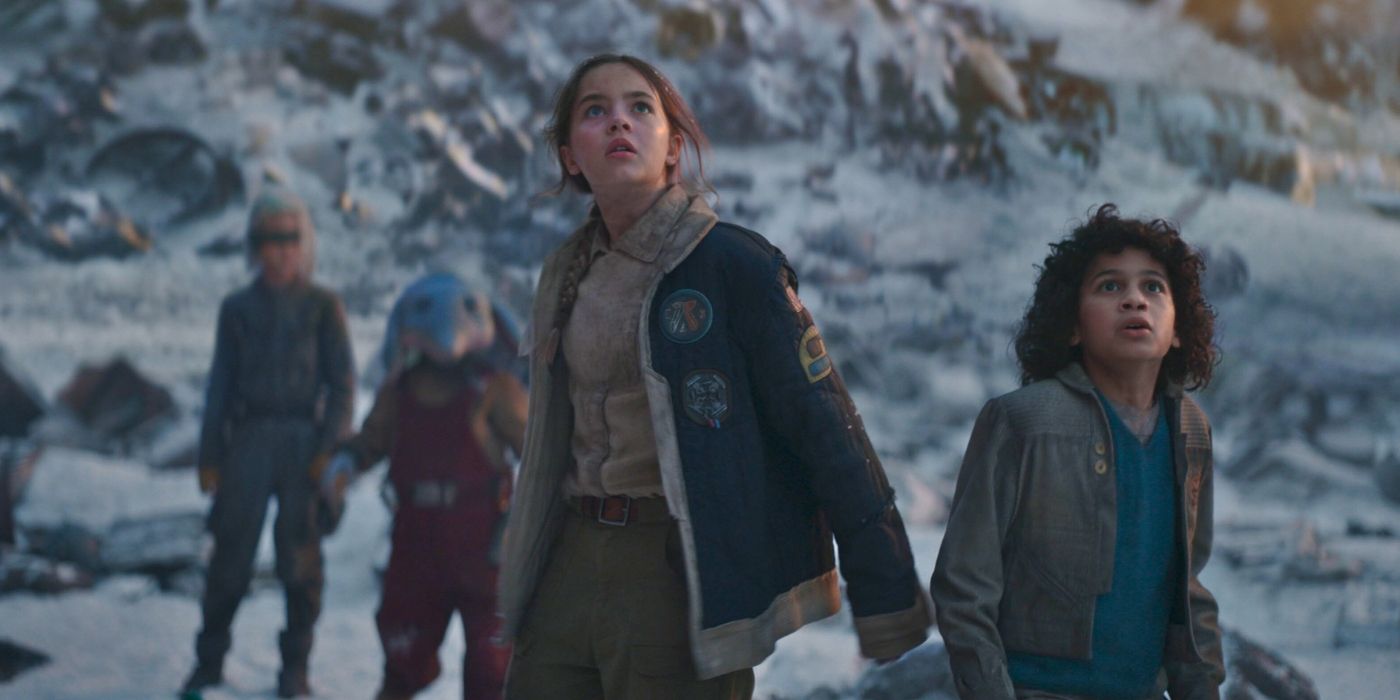
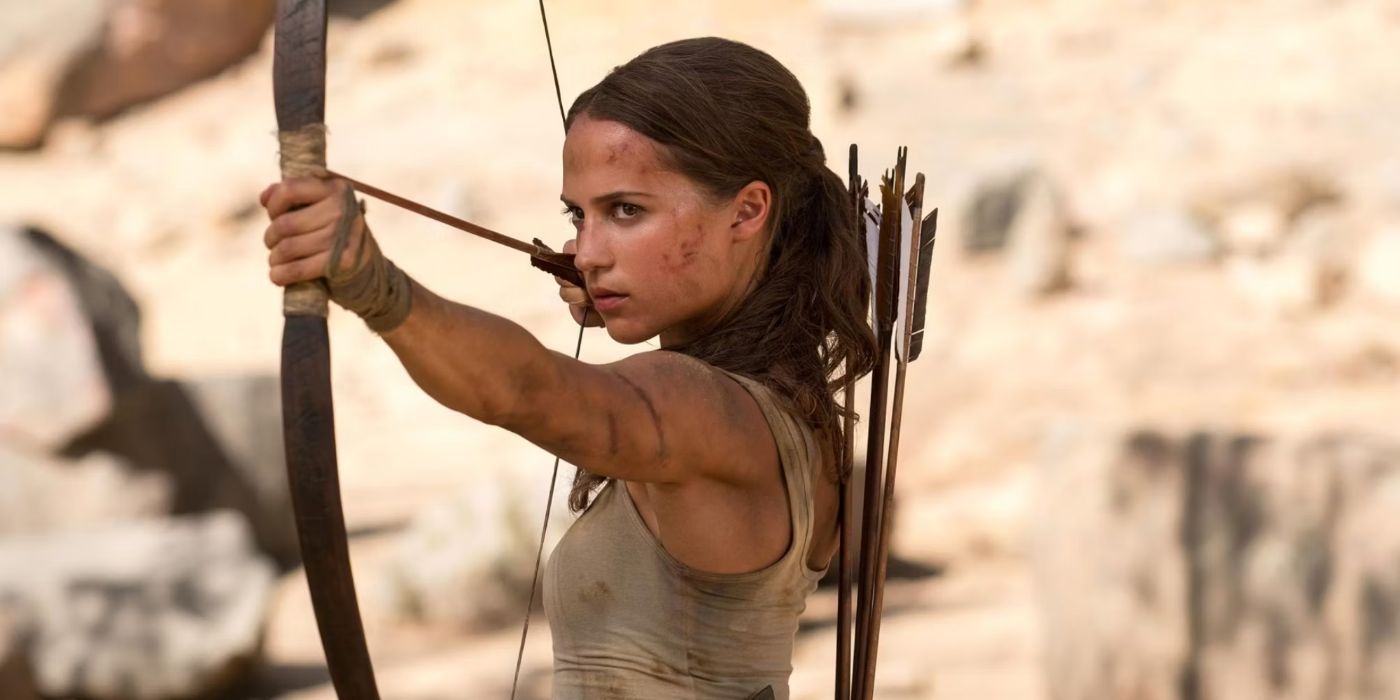
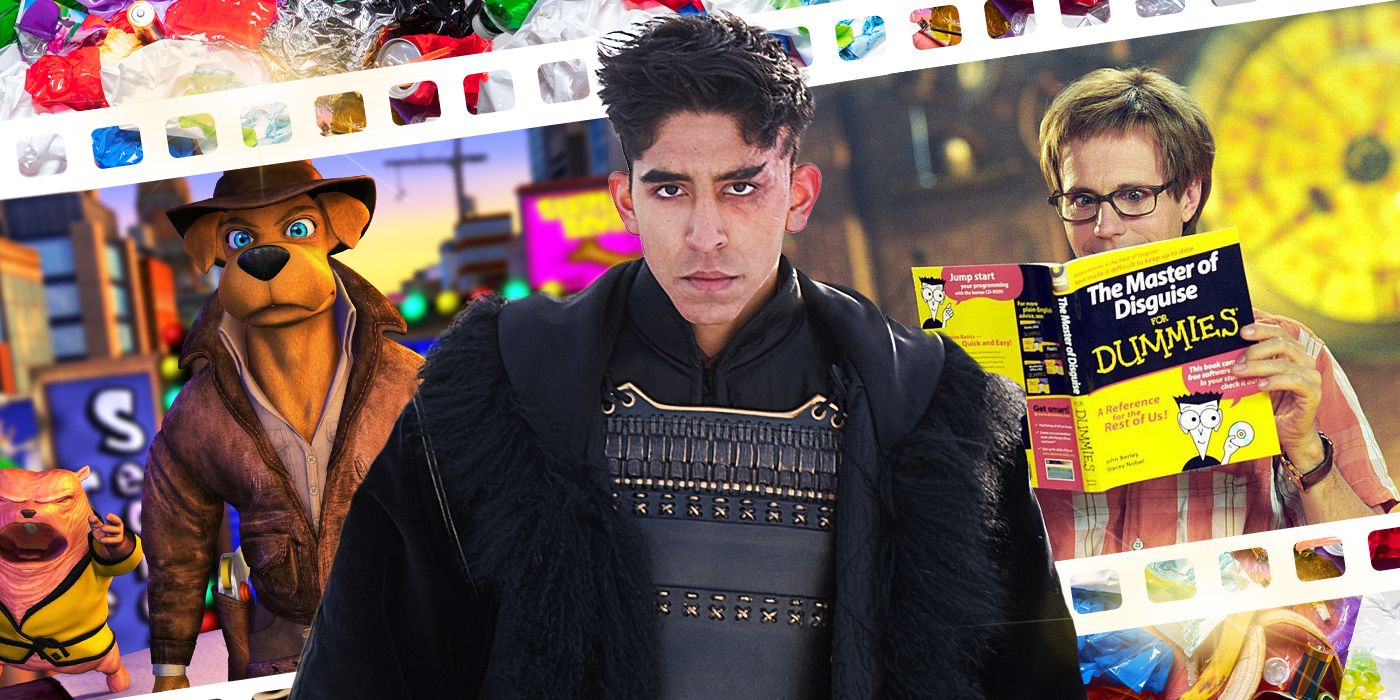


:quality(85):upscale()/2024/06/27/002/n/43463692/273a0466667defdb06a697.27831546_.jpg)

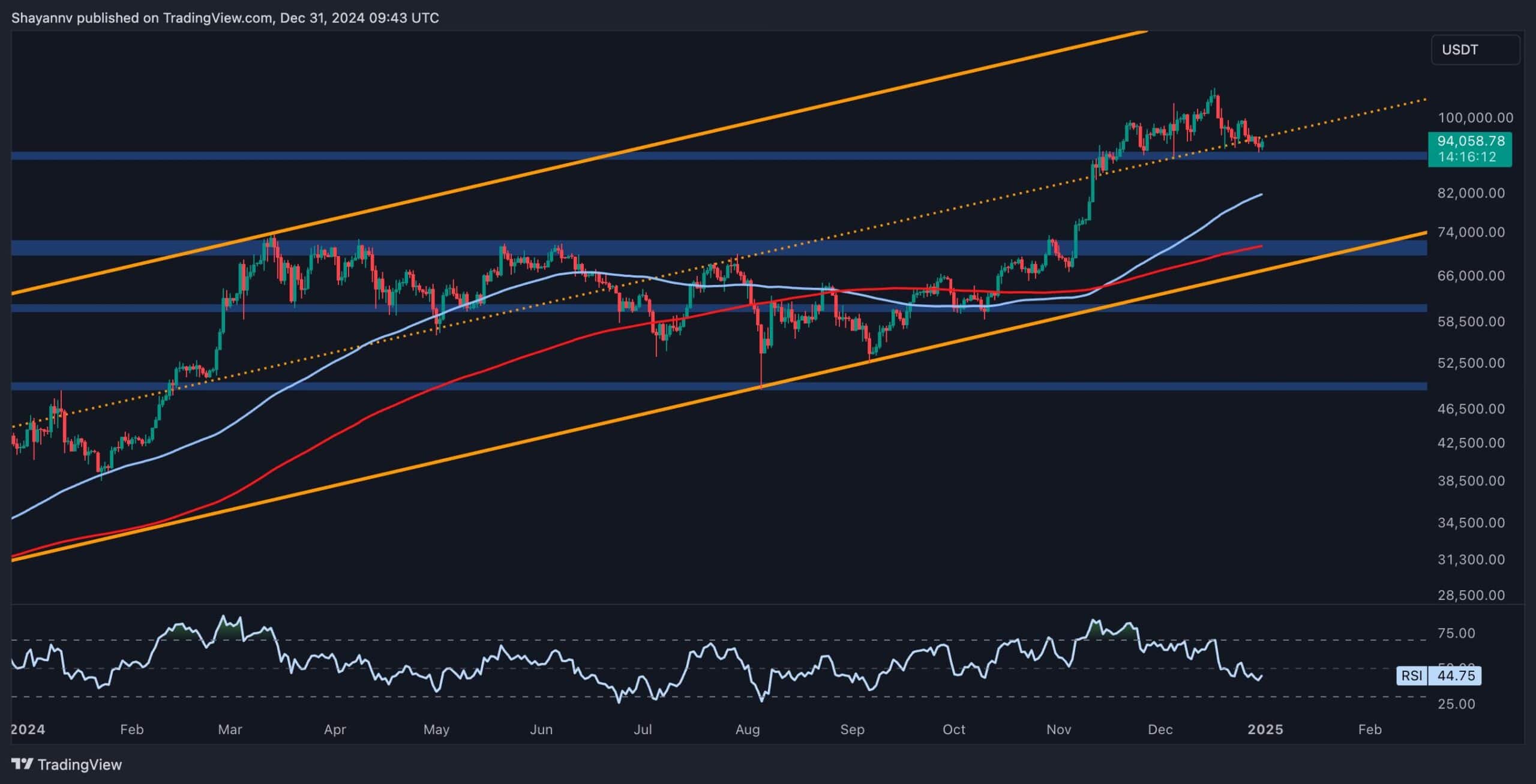
 English (US) ·
English (US) ·